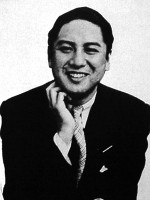Gozonji Azuma Otoko is a film directed by Eisuke Takizawa with Kazuo Hasegawa
Gozonji Azuma Otoko (2009)

If you like this film, let us know!
Directed by Eisuke Takizawa
Gozonji Azuma Otoko (御存知東男) is a 1939 black-and-white Japanese film directed by Eisuke Takizawa.
Actors
Comments
Leave comment :
Suggestions of similar film to Gozonji Azuma Otoko
There are 23 films with the same actors, 5 films with the same director, to have finally 28 suggestions of similar films.If you liked Gozonji Azuma Otoko, you will probably like those similar films :

Zesshou (1958)
, 1h48Directed by Eisuke Takizawa
Genres Romance
Actors Ruriko Asaoka, Shōji Yasui, Akira Kobayashi, Isamu Kosugi, Eijirō Yanagi, Ken Mitsuda

The Temptress and the Monk (1957)
, 1h28Directed by Eisuke Takizawa
Genres Drama, Fantasy, Horror
Actors Yumeji Tsukioka, Osamu Takizawa, Akitake Kōno, Jun Hamamura, Kō Nishimura
Rating57%






Kawakami Tetsuji, No. 16 (1957)
, 1h20Directed by Eisuke Takizawa
Genres Drama
Themes Sports films, Baseball films
Actors Joe Shishido, Michiyo Aratama, Akira Kobayashi

Six Assassins (1955)
, 1h47Directed by Eisuke Takizawa
Genres Drama
Actors Osamu Takizawa, Shōgo Shimada, Isao Yamagata, Kunitarō Sawamura, Akitake Kōno

The Crucified Lovers (1954)
, 1h42Directed by Kenji Mizoguchi
Origin Japon
Genres Drama, Romance
Themes Seafaring films, Sports films, Transport films, Martial arts films
Actors Kazuo Hasegawa, Kyōko Kagawa, Ichirō Sugai (菅井一郎), Eitarō Shindō, Eitarō Ozawa, Yōko Minamida
Rating79%





Ishun (Shindo) is a wealthy but miserly scroll-maker in Kyoto, especially regarding his younger wife Osan (Kagawa), who was from an impoverished family, and married Ishun for money.
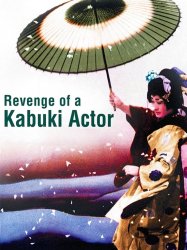
An Actor's Revenge (1963)
, 1h53Directed by Kon Ichikawa
Origin Japon
Genres Drama
Themes Films about television
Actors Kazuo Hasegawa, Ayako Wakao, Fujiko Yamamoto, Ichikawa Raizō VIII, Shintarō Katsu, Eiji Funakoshi
Rating73%





Three men, Sansai Dobe (Ganjirō Nakamura), Kawaguchiya (Saburō Date) and Hiromiya (Eijirō Yanagi) are responsible for the deaths of seven-year-old Yukitarō’s mother and father. Yukitarō is adopted and brought up by Kikunojō Nakamura (Chūsha Ichikawa), the actor-manager of an Osaka kabuki troupe. The adult Yukitarō (Kazuo Hasegawa) becomes an onnagata, a male actor who plays female roles. He takes the stage name Yukinojō. Like many of the great onnagata, particularly of the seventeenth and eighteenth centuries, he wears women’s clothes and uses the language and mannerisms of a woman offstage as well as on. Many years later, the troupe pays a visit to Edo, where the three men responsible for his parents’ deaths now live. Yukinojō brings about their deaths by means of various stratagems, then, apparently overcome by what he has done, retires from the stage and disappears, no-one knows where. The events of the film are coolly observed and sardonically commented on by the Robin-Hood-like thief Yamitarō, also played by Hasegawa.
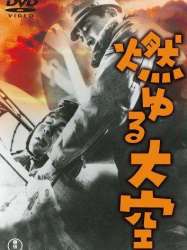
The Burning Sky (1940)
, 2h17Directed by Yutaka Abe
Origin Japon
Genres Drama, War
Themes Politique, Political films
Actors Setsuko Hara, Ryō Ikebe, Kazuo Hasegawa, Michiyo Kogure, Minoru Takada, Susumu Fujita
Rating62%





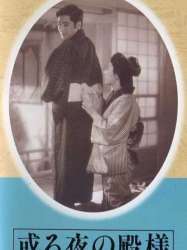
Lord for a Night (1946)
Directed by Teinosuke Kinugasa
Genres Drama
Actors Kazuo Hasegawa, Hideko Takamine, Susumu Fujita, Denjirō Ōkōchi, Isuzu Yamada, Mitsuko Yoshikawa
Rating69%





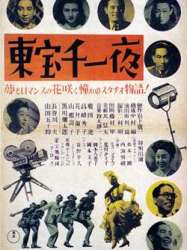 , 1h1
, 1h1Directed by Kon Ichikawa
Genres Drama
Themes Seafaring films, Transport films
Actors Susumu Fujita, Hideko Takamine, Haruo Tanaka, Kazuo Hasegawa, Yatarō Kurokawa, Isuzu Yamada
Rating27%





 Connection
Connection
